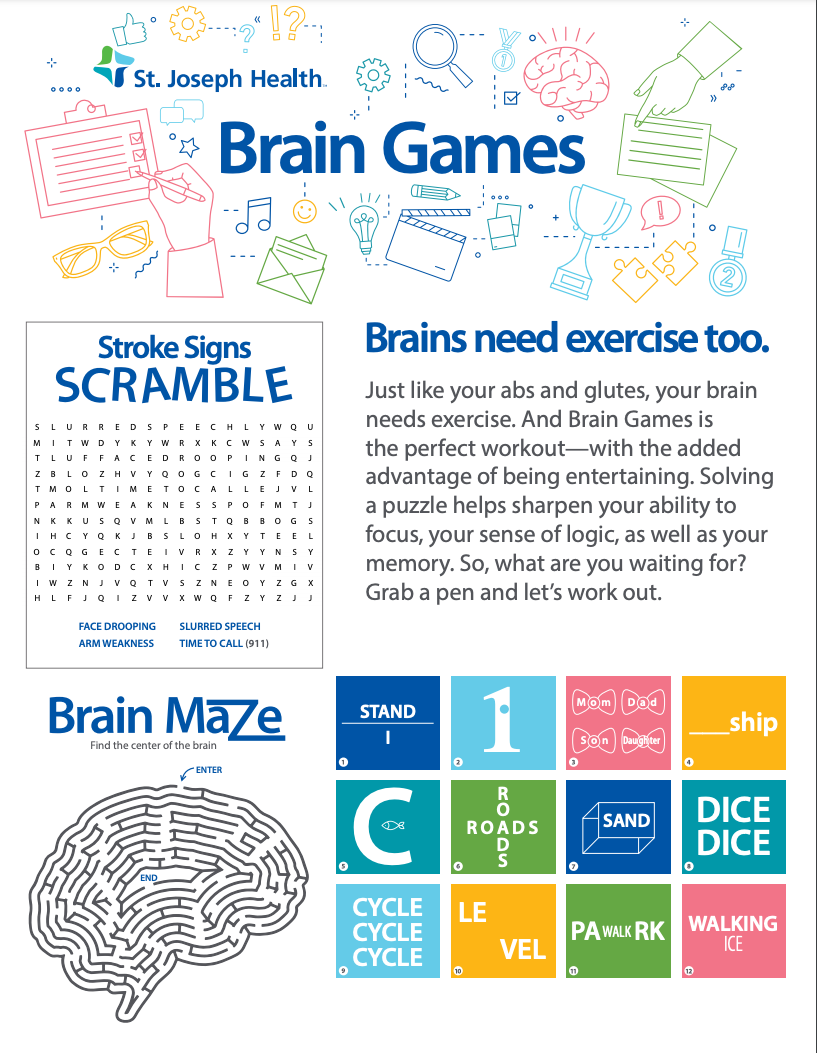Most of us have heard about the billion-dollar “brain games” industry that provides mental challenges to improve cognitive ability. But does this brain training really work? Recent studies have shown an improvement in different cognitive domains after completing extended periods of mental training. The brain is like a muscle; you should exercise it every day. Brain training is important to keep your mind sharp for a longer period of time, since cognitive decline can be an unavoidable part of aging.
Which brain games are most helpful?
There are a variety of activities that could be classified as “brain games,” which are anything that stimulates your brain. Each practice can improve different cognitive functions like memory, problem solving, and critical thinking. Brain games for critical thinking and problem solving include crossword puzzles, chess, Sudoku, or bridge. Mental training can also include creative outlets like drawing, playing an instrument, or learning a new language. Try to find a variety of mentally stimulating activities that you enjoy so you will be more likely to keep up with the activities.
How often should you practice brain training?
According to the American Psychological Association, people begin to see cognitive decline in perceptual speed –– quickly comparing symbols, figures, or numbers for patterns –– beginning in their 20s or 30s. People who participate in brain games for a few hours a week have experienced lasting benefits. Research suggests that once people learned to have better control over their attention and mental processing abilities, they can apply what they learned from the brain games into day-to-day activities.
What are the benefits of brain games?
Major benefits are seen when you practice brain training because this allows for neuroplasticity to work its magic. Neuroplasticity is the ability of the brain to form and reorganize synaptic connections. One of the most researched benefits of mental games is the brain’s working memory, the part of short-term memory that is concerned with understanding concepts and languages faster. A study had participants train by doing memory-related tasks, and the results showed increased attention inside and outside the lab.
Does brain training alone help to improve cognitive function?
Research shows that one of the best ways to build up working memory is to combine cognitive training with regular exercise, adequate levels of sleep, healthy diet, and talking with other people. In fact, around 150 minutes of moderately intense physical activity a week can increase blood flow to the hippocampus, the brain’s memory storage. Each of these activities by themselves has cognitive benefits, but when you put them all together, the benefits increase even further.
While brain games can improve your cognitive ability, it is important to maintain a well-rounded, healthy lifestyle. You should also focus on mixing up the type of cognitive-related activities to keep your brain stimulated. If you do the same activity over and over again, your brain becomes less stimulated by that activity. Now, give your brain a workout and check out some of our brain teasers.





